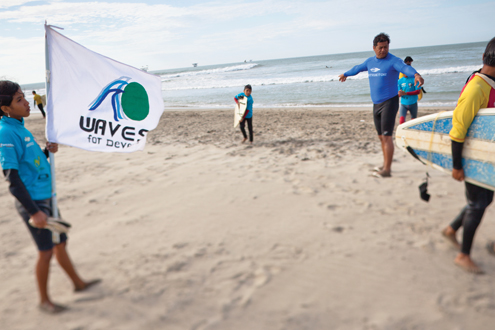Connie K. Ho introduces StudyShare.org, the new hub for service learning
As the world’s work force becomes more advanced, students need to graduate university with the necessary skills and experiences that will make them stand out. One of the tools that can give students leadership and cross-cultural understanding is service learning. It provides students with real world experiences, where they can apply what they’ve learned in the classroom in a professional setting. StudyShare.org brings together students, companies, and volunteer organizations. The site profiles student experiences of service learning at an international level, while showcasing information from employers who value that experience, and highlighting the groups and organizations that benefit from service learning.
For those new to the concept, here are views from experts in the field:
Sarah Noel at Amizade Global Service Learning claims that their “mission is to empower individuals and communities through worldwide service and learning. Service learning allows for mutually empowering experiences where volunteers learn and grow, and communities are served in the process.”
Service learning is “a unique volunteer experience that complements education. Service learning is growing as a field because it allows students to combine experiential learning with formal academic studies, while transforming theory into tangible realities and first-hand knowledge,” according to Li Quach of Cross-Cultural Solutions.
Important to Kristen M. Kusek of the Earthwatch Institute is the opportunity for volunteers to “work side by side with scientists, broadening their understanding of the issue while also connecting with fellow volunteers. Their journey is both outward and inward; their hearts and minds open to the possibility of a healthier planet, and they leave equipped to empower change in their own lives.”
Laura Nuñez of the Global Citizens Network points out that “as the world gets smaller and smaller due to knowledge available through internet, social media and other ingenuities of technology, students seek more meaningful, palpable and unique opportunities to engage locally and globally. Service learning is filled with emotions, insights, excitement and anticipation that energize participants,” while Francisco Pastor at the Ecuador Volunteer Foundation believes that “through service learning, students learn to apply the knowledge and skills acquired in the classroom to real life situations.” Global Volunteers’ Michele Gran goes as far as to say that “international volunteerism and study abroad programs have emerged on college campuses as necessities of a well-rounded education. Today, students must have a global perspective on business, the arts, politics, journalism, health care, and general scholarship. To live, work, and dream in this interconnected world, we must relate to different people, cultures, and lifestyles seamlessly and respectfully.”
Joan Gillespie of IES Abroad notes that “the growing interest in service learning reflects the commitment of the college-age population to contribute to his or her community and the high need of non-profit social services worldwide,” and Arianne Newton at the International Partnership for Service Learning & Leadership stresses that “true service learning is ‘academic,’ sustained and is modeled on reciprocal understanding and mutual benefit to both the giver and the receiver and this is exactly what is needed now more than ever in our increasingly ‘shrinking’ world.”
Reciprocity is key to Daniel Radcliffe at International Volunteer HQ, “Volunteer teaching abroad is growing as people see the benefits that this service can have, not only upon the community they are working with, but also with respect to their own personal growth and learning. Having taught abroad in a volunteer capacity, people are finding they are more employable and potential employees value the experience that this has given them.”
“Service learning allows participants to understand their role in service and to realize it is not only an act of charity, but that they too gain a reciprocal benefit, gaining valuable experience and problem solving skills while also providing a greater impact to those they serve,” adds Adam Saks of ProWorld.
Joan Perreault of Spanish Studies Abroad focuses on language: “Service learning opportunities abroad offer students the chance to gain rewarding professional experience while developing their language skills and giving back to their host communities.”
Katherine Dayton, program director at VISIONS Service Adventures, takes a more ethereal view, describing the experience as “not focused on information-gathering. Rather, the program experience is process-focused. Aesthetic knowledge is derived from and anchored in the experience of living within the culture, relating to, and learning from community members by participating in daily life and the rhythms of life within the culture.”
The final word goes to Matthew Manning from Outreach 360 who argues that “reading helps to develop consciousness, critical thinking, and curiosity. Yet books can ultimately only take a student so far–they can make you smarter, but only experience can make you wiser. Service learning — whether for language or anything else — is actually an adventure.”
Connie K. Ho is project editor for studyshare.org, a website for volunteer-based organizations. She writes about service-learning and global volunteerism. Contact her at [email protected] with story ideas, tips, and photos submissions.



